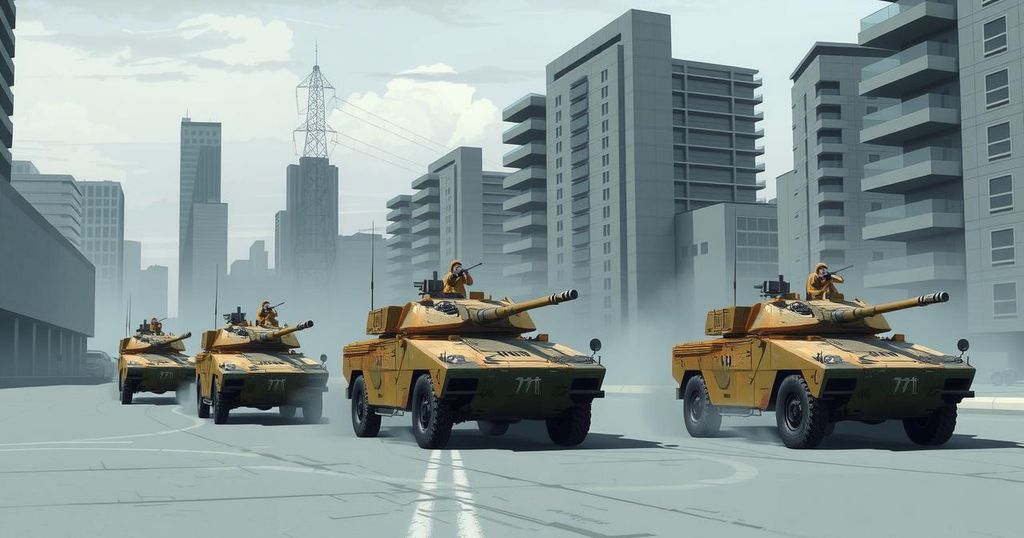On Saturday, Sudan’s military reported reclaiming central Khartoum buildings, including the presidential palace, with continued pressure on the Rapid Support Forces (RSF). Despite their territorial gains, the military and RSF hold different regions across the country, and recent civilian casualties were reported in North Darfur amid ongoing battles.
On Saturday, Sudan’s military announced significant territorial gains in central Khartoum, having reclaimed several pivotal establishments from paramilitary control. This news follows army chief Abdel Fattah al-Burhan’s declaration of intent for “full liberation” after the military’s retaking of the presidential palace. Army spokesperson Nabil Abdallah indicated that the military continues to exert pressure on the Rapid Support Forces (RSF) across the city, notably regaining control of the Central Bank, state intelligence headquarters, and the Sudan National Museum.
Despite these strategic advances, Sudan remains effectively divided, with the army governing the eastern and northern regions, while the RSF maintains dominance over the nearly entire western area of Darfur and parts of the south. Reports from activists indicated that dozens of civilians have died in a recent RSF attack in a remote area of North Darfur state, which is significantly distant from the capital.
Since the outbreak of conflict in April 2023, Khartoum’s national institutions were largely overwhelmed and pillaged by paramilitary forces. An RSF insider confirmed the withdrawal of some RSF fighters from central Khartoum but underscored that “the battle has not been decided yet,” indicating ongoing hostilities, especially near the airport.
In summary, the Sudanese military has made considerable strides in retaking central Khartoum and several pivotal buildings from the RSF following the recapture of the presidential palace. While these developments indicate a tactical shift, the country remains divided, with the RSF still holding substantial territories, specifically in Darfur. The situation remains volatile, underscoring the ongoing complexity of the conflict in Sudan.
Original Source: www.scmp.com




